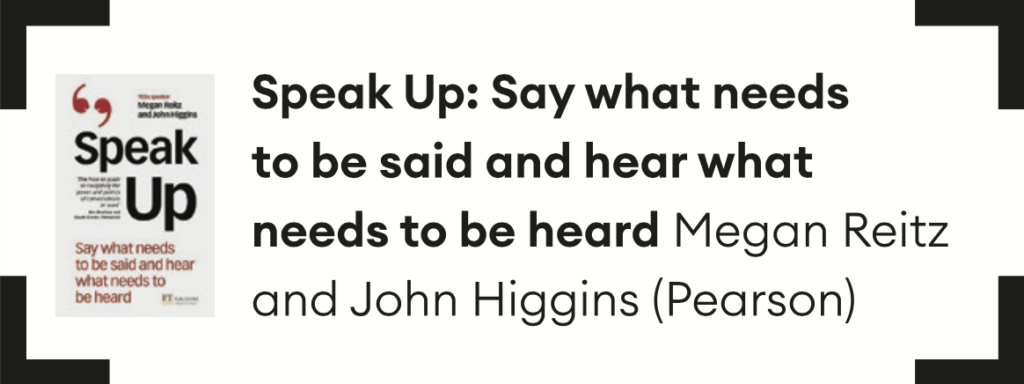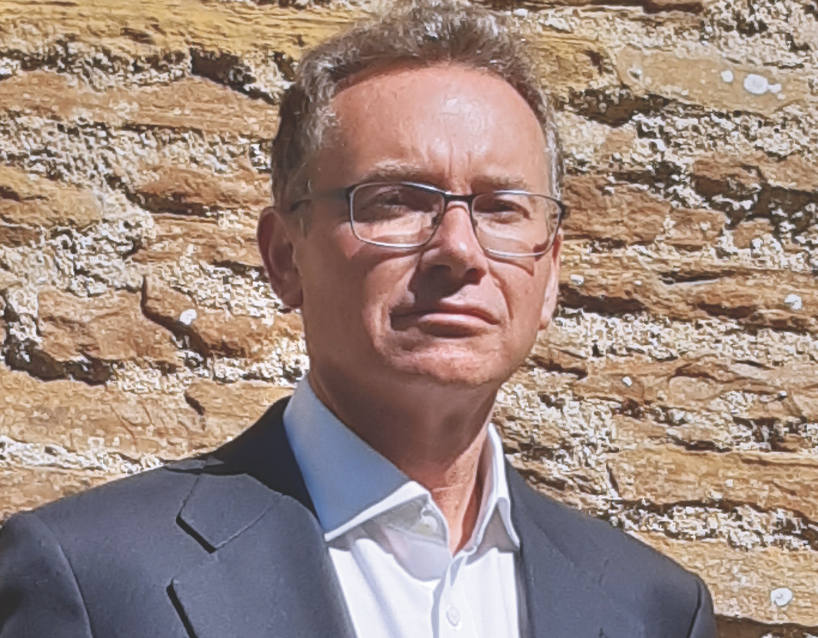Nevertheless, speak up and listen up, says Piers Cain
It has seldom been riskier to speak up in liberal Western countries. Say the wrong thing and a Twitter mob can end your career overnight. In the workplace, calling out unethical behaviour by a senior executive, challenging a business strategy that isn’t working, or simply expressing the ‘wrong’ opinion can put you on the ‘To Go’ list come the next restructuring round. For the less well off, or those with dependents, saying the wrong thing could have even more costly consequences.
As Megan Reitz and John Higgins discuss in Speak Up: Say what needs to be said and hear what needs to be heard, we like to think that speaking up – and, equally importantly, listening – are core values of our societies and our organizations. We tell ourselves that our businesses need to harness diverse views to drive innovation, to keep close to our customers, to challenge and improve our policies and strategies. At a personal level, we see the dissatisfaction and the psychological harm done when individuals feel that they cannot speak out – or that if they do, they won’t be heard. Black Lives Matter shows the anger and frustration that can build up over time.
Yet there is a gulf between what we say we believe and what we do. We tend to blame others or ‘the system’ when we fail to speak up. Still, most of us are much happier speaking than listening: we have more power than we often realize, and we forget that others may find us intimidating. We can get better through practice, though, learning when and how to speak up, and creating opportunities for others to be heard – listening and speaking is a social dance. But remember, at its heart, who gets heard and who does not is a matter of power. As society becomes more unequal, things could get far worse.
A digital future is changing the landscape too. Post Covid-19 lockdown, working from home is likely to remain more common. This may not be all good. It could reduce opportunities for unscheduled, informal conversations: the chance meeting of a new colleague in another department, the coffee machine chat, that quiet word with someone after work. There is even the scary prospect that all your online interactions will be analysed by HR using AI to determine the level of your commitment to the organization, or your contribution to its business plan. Technology is never neutral.
There is a collective benefit in empowering people to speak up, in greater productivity, innovation and performance. Yet for individuals, the risks and costs are often too high: for the whistle-blower who might expose a chief executive’s wrong-doing, or the ethnic minority employee who complains about a lack of promotion, the stakes are high. People won’t speak up unless they feel safe enough to do so and there is something in it for them. Leaders need to create trust and respect.
Unfortunately, over a long period, employment has become increasingly transactional, with employees re-labelled ‘human resources’ – disposable inputs to the organizational machine. As numerous global surveys show, employee engagement has gone through the floor.
I have a modest, if idealistic, proposal. Maybe we should consider an organization as primarily a community, in which everyone has a stake and everybody is expected to contribute to achieving a common purpose.
Instead of fancy mission statements which change every few years, why not adopt the unofficial motto of that notorious left-wing organization, the Swiss Confederation? Unus pro omnibus, omnes pro uno – one for all, all for one. Then do something about it.
––– Piers Cain is a management consultant


